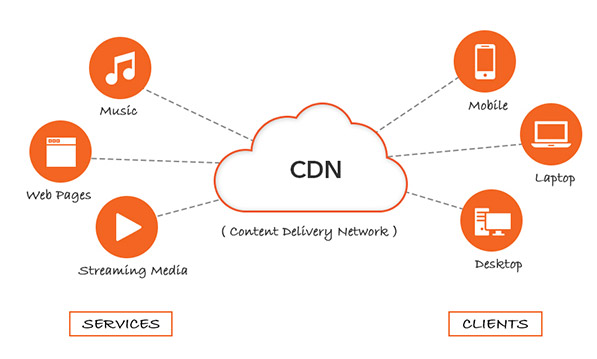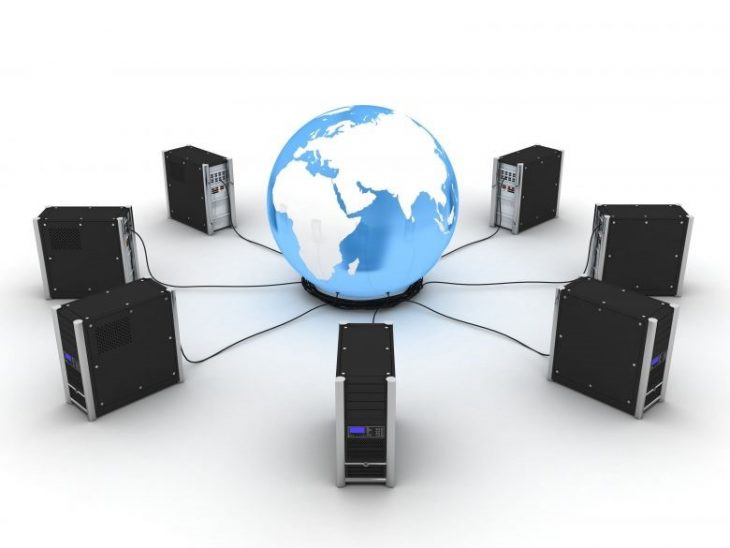Since the advent of the the thing called internet it has taken the world by storm, and today almost everyone is connected to the internet today. We’ve come a long from online chat rooms to virtual reality, and it does not stop here! Today the internet is not only a source of entertainment, but it also serves as a medium of education, information, awareness and most importantly the internet has now become a major source of earning.
Businesses of all kinds have shifted on the internet. Whether its education, health care, advertising, estate or online shopping, you need to have a proper website which is user-friendly and attracts your set target audience. One thing which is crucial for every online business website is “speed.”
Suppose you have a high-end website with an alluring design but when a visitor visits your website it takes almost forever to load the web pages the user has requested, this will irritate the user and they’ll move away from your website. Therefore speed is one of the most primary factors on which your online business hangs. According to research, some facts have been uncovered. They are:
- 40% of visitors abandon your website that takes more than 3 seconds to load.
- Almost 52% of online shoppers highly claim that quick and swift page loads are paramount for their loyalty to the website.
- Users will seldom visit those websites which load slowly than those in the competition which load fast and has a mere difference of 250ms.

The open internet means that people from anywhere in the world can access your website, but they have to connect to the same server in order to access your website regardless of their location. If someone who is physically located far away, tries to access your website, he has to connect to the server in which your website is based; this will take up some time, causing the dreadful issue latency, which can annoy your end user which can result in they leaving your website which future ado.
This is where a CDN comes in. A Content Delivery Network or CDN is a network of distributed servers across the globe. A CDN manages things in such a manner that every end connects to the server that is close to them and which flawlessly replicates all the content on your central server. For example, your website is based in Asia, and someone from Europe is visiting your website. So the visitor will access the closest server near his location, which will instantly load all the web pages giving the user a satisfactory experience while visiting your website. If you would have used a CDN, then the user will have to go across the world in order to obtain the content they need from your website.
To put it in simple words, a CDN replicates static content (images, CSS and java scripts flies) on multiple servers that are spread all over the world thereby not only minimizing traveling time for content but it also acts as a load distributor, preventing your website from crashes.

These are few of the Advantages of using a CDN hosting service, more are mentioned below.
ADVANTAGES OF USING A CDN.
There are many advantages that include.
- Faster content deliverance.
- More control on content delivery.
- Decrease server load.
- 100% availability.
- A substantial increase in the number of parallel users.
Faster content deliverance.
CDNs are placed closest to the user that decreases latency and packet loss due to the less distance that is traveled by content. The closer to the user is to the server, the faster the content travels. Therefore all the users visiting the website will experience much less jitter while video streaming, fewer network spikes and an overall improved quality of streaming. Many CDN providers offer a service called TCP acceleration technology that boosts performance, thus decreasing latency resulting in best user experience with explosive content.
More Control on content delivery.
Another advantage of CDN hosting is that there is more control of asset delivery and the network load is awarded. Operators have the wide ability to deliver crucial information such as, real-time statistics, display active regions, indicated which assets are popular, optimize capacity per user and to report all the viewing details to the customers. Every detail is very important as the usage log gets deactivated once the server source is added to the CDN.
Decrease server load.
The strategic placement of the CDN server can minimize the server load on backbones, interconnections, private and public peers which free up the overall capacity and lessening delivery costs. The static content is spread out across multiple servers distributed globally.
100% availability.
As CDNs distribute assets across many regions, therefore they have an automatic mechanism that senses server availability with spontaneous user redirection. Hence all CDN websites have 100% availability even during situations such as network problem, hardware issue, and power outages
A substantial increase in the number of parallel users.
A CDN not only boosts your website but it also manages high traffic flow, people from all over the world can access your website simultaneously. They in reality will not be coming to the origin server. Instead, they will be visiting the CDN server that is geographically located near them, and hence many people can access your website all at the same time.
DISADVANTAGES OF USING A CDN.
The Internet is a big place which as connected almost everyone together. Therefore not everyone needs to deploy a CDN service. Hence there are a few disadvantages of a CDN hosting service.
- Cost.
- Verification of the best locations.
- Support.
- Impractical for many organizations.
- Maintenance.
Cost
One of the greatest drawbacks of a CDN is the cost assigned to its service. CDNs are not cheap; they are expensive to deploy and have many hidden charges. The price structure may be this way because the service providers want to keep the small business men away and only focus their attention on the giants of the online market. One example of a hidden charge is the high cost per each GB and data transfer. Therefore it is necessary to carefully read all the terms and conditions of a CDN service before subscribing to it. Today there are many cdn resellers that provide you all the services of a CDN in a much cheap price.
Verification of the best locations.
Before deploying a CDN service, the customer must research thoroughly on facts such as that where are all the servers of the CDN provider is located. If the servers are located in such geographical locations that are useless to the customer that it will only worsen the website’s performance, low latency, downtime, jitter on streaming video making it an unpleasant experience for the user. Customers must completely verify all the exact locations of all servers judge that either the CDN will be beneficial for their organization or not.
Support.
Since many organizations employ third-party vendor to manage the CDN, which makes the question of support availability prominent, suppose that there is a major technical issue, can the operator fix in due time and prevent it from happening again.
Impractical for many organizations.
Inherently the nature of the Internet is global therefore websites receive hits from across the globe. Hence it is impractical to maintain replicate servers around many locations that are of little use to the organization.
Maintenance.
Much like support, maintenance also is done by a third party vendor to manage the CDN hosting, and again questions come into light. Like can the operator effectively maintain every server with proper updates and patches required without disrupting the organization’s content network and more importantly placing the entire company’s corporate network into the hands of a mere operator is a risky move to make. Hence, all factors should be taken into consideration, and black up plans must be implemented just in case if things don’t go accordingly.

Conclusion.
After understanding what exactly a CDN service is, how it works and its advantages and disadvantages, you can easily judge this either this service is beneficial for you or not. CDN promises many great things that can undoubtedly push your online business to new heights, but all that can also backfire if you have not carefully looked at every aspect of the CDN service. You be the judge and decide yourself!
Content Provided By Tomy Granade, marketing manager of jodihost.com
